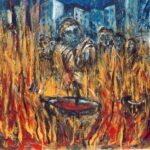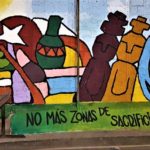
On Method
If we sustain the distinction – as we try to throughout this book – between “politics” (understood as the battle for power) and the experiences in which processes of the production of sociability or values are at stake, we can distinguish then between the political militant (who founds their discourse on a certain set of certainties) and the militant researcher (who organizes their perspective on the basis of critical questions concerning these certainties).
 Viewpoint Magazine
Viewpoint Magazine







